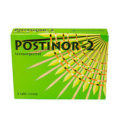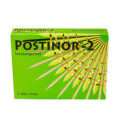Over the years the indiscriminate use of birth control pills otherwise known as oral contraceptives has assumed a dangerous dimension. This unhealthy trend especially among teenagers, single and unmarried has persisted despite the dangers of contracting HIV and other sexually transmitted disease due to unprotected sex.The widespread availability of these products at very cheap prices is fueling an endemic dependence syndrome and proliferating disease among the sexually active.
The haphazard consumption of contraceptives pills is not without its consequences and this piece is premised on the fact that there is a public health obligation to educate the population on the dangers of these actions and its permanent consequences on reproductive health and general well-being. it is important to note however,that the use of oral contraceptives such as Norgestimate Ethinyl Estradiol can decrease the risk of ovarian cysts, make a woman’s period less painful and more regular and also reduce the rate of blood loss.
How Birth control Pills Work
Oral contraceptives prevent pregnancy by several mechanisms. The primary goal of an oral contraceptive pill is to stop or prevent the fertilization of the female egg by the sperm. If this is successful the woman cannot get pregnant.
Most contraceptives contain synthetic female hormones mainly estrogen and progestin.
SEE: How long does Postinor 2 last in the body
DANGERS
- Exposes You To Super- Infection
Oral contraceptives predisposes you to super infection, it can also lead to estrogen dominance, which in turn triggers a Candida overgrowth. A study conducted by the University of Michigan averred that, oral contraceptive use typically doubles the risk for developing Candidiasis.
- Damages the Liver
Research has shown that oral contraceptives places unnecessary pressure on the liver which results in liver complications including peliosis hepatis, hepatic adenomas, hepatocellular carcinoma, intrahepatic cholestasis, sinusoidal dilatation, and hepatic venous thrombosis.
- Increased Risk of Heart Attacks, Strokes, And Alzheimer’s, Disease
A recent research published by Elsevier linked homocysteine levels with increased risk of some major disease conditions including heart attack and stroke. Oral contraceptive significantly increases the level of homocysteine in the body
- Structural Birth defects and Autistic Children Spectrum Disorder (ASD)
Autism Spectrum Disorder (ASD) and structural birth defect have been liked to previous oral contraceptive intake. Abusing oral contraceptives can significantly increase the chance of giving birth to a deformed and or autistic baby.
Generally, the use of oral contraceptives or birth control pills also come with some side effects
Common side effects of oral contraceptives use include;
Gingivitis
- Intermenstrual spotting (spotting in between menstrual periods)
- Acne
- Nausea. …
- Breast tenderness. …
- Decreased libido
- Weight gain. …
- Mood changes. …
- White vaginal discharge
- Darkened urine
SEE: Menstrogen tablet
Less common side effects of oral contraceptive use include;
- Headaches. …
- Vomiting
- Coughing up blood
- Shortness of breath
- Vision problems
- Depression
- Leg pain
- Vision problems
Copyright ©
Permission is hereby granted for the use of whole or parts of this article provided appropriate credit is given to www.publichealth.com.ng






can domperidone help you loss weight is domperidone over the counter amlodipine besylate tablets usp 5mg